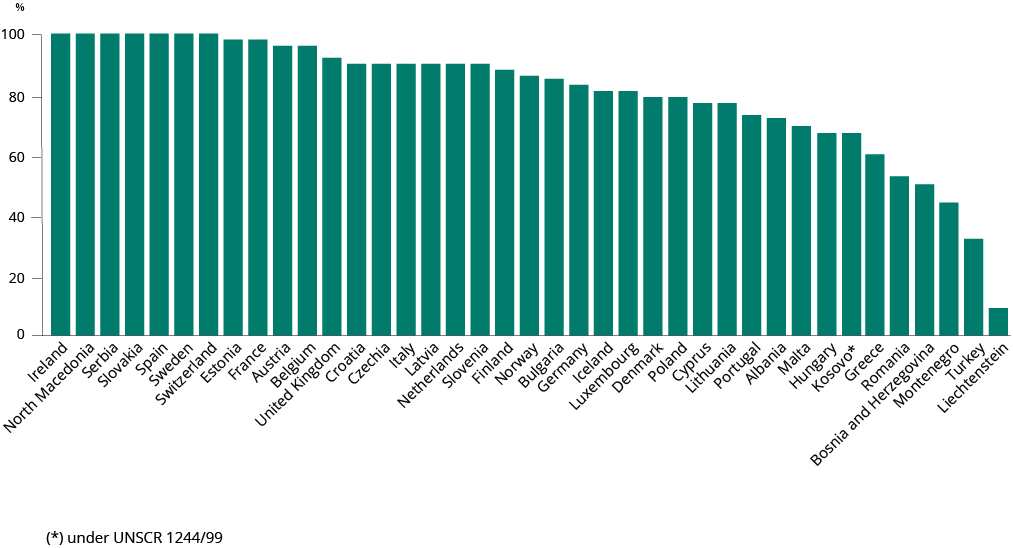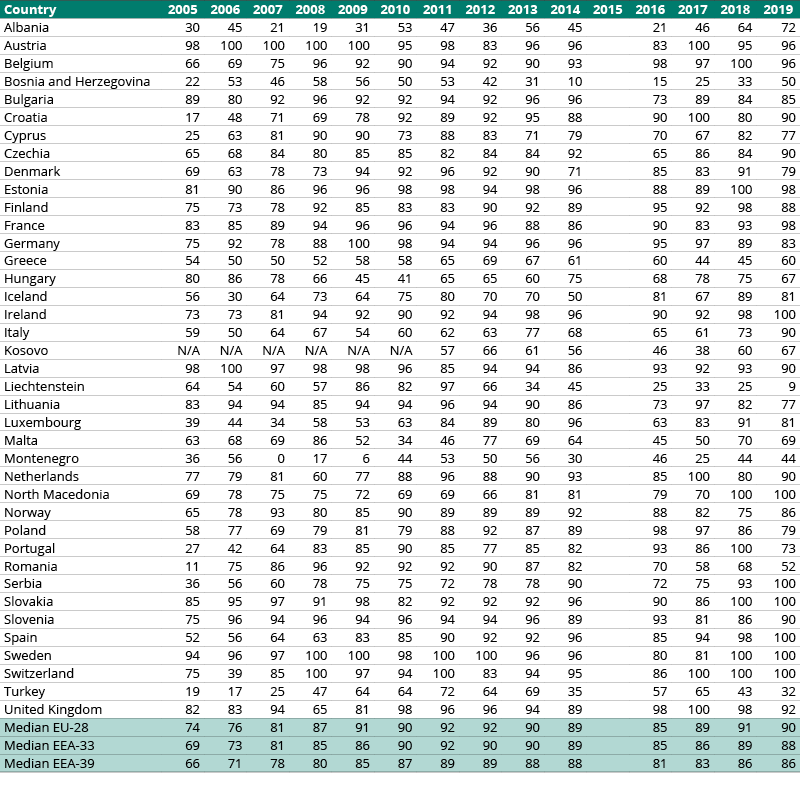The annual evaluation of deliveries under the Eionet core data flows is a continuation of the earlier reporting on Eionet priority data flows, for which annual reports have been published by the EEA since 2005. The scoring of countries’ reporting performance on the basis of key data flows is considered to be an important driver contributing to improved reporting. The annual process conducted by the EEA and Eionet is an evaluation of data deliveries at the technical level, which is performed independently of other data flow monitoring activities that may exist, e.g. those carried out by the European Commission for compliance reasons.
Note: N/A: Not applicable
Table 1. shows the reporting performance (in %) since 2005. A score of 100 % indicates timely and high quality data deliveries across all covered data flows. For each data flow, a score from 0 to 4 points is given according to the timeliness and quality of the delivered data. The scores from all data flows are summed for each country and expressed as a percentage of the maximum achievable score. More details on the scoring and the rules applied are available from the Eionet website.
In 2015, no evaluation of deliveries was made because of the review of core data flows. Although the review lead to changes in the list of data flows, the recent results remain largely comparable with those from earlier years, as overall evaluation principles have not been changed.
Background to Eionet core data flows
Eionet data flow monitoring and progress reporting began in 1999 with an initial geographical coverage of the original 18 EEA member countries and a thematic scope of nine priority data flows. Since then, the list of data flows has expanded to 13 and the number of countries has grown to 39, as all 33 EEA member countries as well as the six cooperating Western Balkan countries are now covered by the data flow reporting.
During 2015, a review of data flow reporting was done in response to a need to realign the existing set of data flows with EEA priorities, i.e. the needs deriving from the EEA’s Multi-Annual Work Programme (MAWP) 2014-2018. During the review process, the following definition was established: “Eionet core data flows: a subset of existing key data flows reported by EEA member and cooperating countries agreed by the Management Board using the Reportnet tools and which are used by the EEA for its main assessments, products and services”.
In November 2015, a set of 18 Eionet core data flows that provides a better reflection of the importance of data flows for the EEA’s assessment activities was adopted by the EEA Management Board. This briefing summarises the fourth evaluation of core data flows, covering 12 core data flows in the following areas:
Air quality
- AQ IPR/E1a: Information on primary validated assessment data
- AQ IPR/E2a: Information on primary up-to-date assessment data
Air emissions
- CLRTAP: Air emission annual data reporting
Biodiversity
- CDDA: Nationally designated areas
- Birds Directive Article 12: Report on progress and implementation
- Habitats Directive Article 17: Report on progress and implementation
Climate change mitigation
- GHG: Greenhouse gas inventories
- GHG: Projections (greenhouse gas emissions and removals)
Industrial pollution
- E-PRTR: Article 7 data reporting
Water
- BWD: Monitoring and classification of bathing waters
- WISE SoE: Water Quantity (WISE-3)
- WISE SoE: Biological data and water quality data (WISE-2, WISE-4 and WISE-6)


Document Actions
Share with others